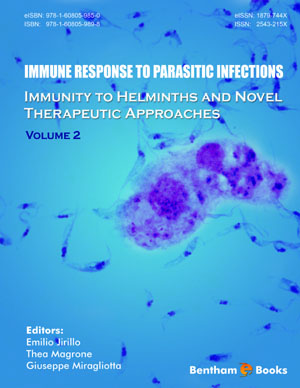Abstract
Intestinal microbiota is in strict relationship with gut immune cells and a good balance between both components is able to guarantee a condition of healthy status in the host. Helminths tend to alter the host immune system via release of anti-inflammatory cytokines and, in particular, interleukin (IL)-10. IL-10 release by FoxP3+ T regulatory (Treg) cells, in turn, down-regulates T helper (h)2 cells, which instead protects the host against helminths. At the same time, helminths are able to interact with intestinal microbiota, thus leading to either harmful or protective effects. Therapeutically, polyphenols have been shown to modulate gut microbiota, also interfering with helminth development. In this context, our studies using polyphenols from red wine and fermented grape marc have shown antiinflammatory activities exerted by these compounds, even including expansion and activation of Treg cells. Since evidence has been provided that Treg cell activation with production of IL-10 can attenuate immunopathology in the later phase of helminth infections, dietary polyphenols may be beneficial in the chronic stage of parasitoses.
Keywords: Antigen presenting cells, bacteria, basophils, cytokines, dendritic cells, eosinophils, helminths, interferon, interleukins, immunopathology, lipopolysaccharides, macrophages, microbiota, monocytes, neutrophils, polymorphonuclear cells, polyphenols, T helper cells, T regulatory cells, Toll like receptors.






















